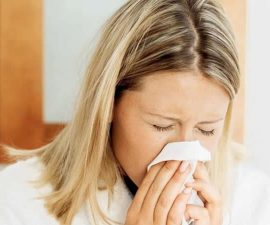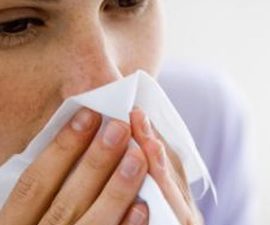… Continued …
Changes in PH of the mucus
The blocked of drainage channels in sinusitis mean that the mucus cannot flow as well as usual. As a result, there will be too much mucus that builds up – creating a rich, friendly environment for bacteria or viruses to thrive. This can change the PH of the mucus to become more acidic.
The more acidic PH of the mucus may also affect the stomach, causing stomach upset. And then you can have diarrhea.
Side effect of particular antibiotics
Again, most cases of sinusitis are caused by infection such as due to bacteria or viruses. And like with common colds, the body is naturally designed to be able to fight this infection. The body immune system is usually able to clear the infection on its own and the symptoms will relieve within a couple of weeks.
In general, the use of antibiotics is often not needed. However in a few cases, some patients with sinusitis may require antibiotics to help fight the infection.
Antibiotics for sinusitis can lead to side effects. One of them could be diarrhea. Depending on the type of antibiotic – other side effects may include nausea, vomiting, and skin rashes.
In other words, the use of antibiotics for sinusitis is sometimes helpful. But this benefit should outweigh the risk. In general, a course of antibiotic can be prescribed if:
- The sinusitis is associated with other underlying health conditions such as immune disorder, heart problem, or cystic fibrosis.
- The symptoms are very severe, particularly true if they also don’t respond with lifestyle measures.
- The symptoms last longer than expected (such as not settling down within a week) or get worse.
Sinusitis and diarrhea treatments
If your diarrhea does link to the sinusitis, it usually will improve as the disease goes away. Since sinusitis is usually harmless and often responds with lifestyle measures, the following tips may help:
- Get adequate rest! This can be help a lot to allow the body fights the infection optimally and get recovery more quickly.
- Keep hydrated – drink plenty of water to help dilute the secretions of the mucus and also promote drainage! This is also important to cope with diarrhea.
- Sleep with the best position to promote a quick recovery. It’s thought that sleep with the head elevated is the best choice to help the sinuses drain and also reduce congestion.
- If you have particular allergy, manage it as well!
- Avoid any airborne-irritants such as tobacco smoke and air pollution, because they can irritate your nasal passages.
Drinking liquids between meals are recommended for diarrhea, because this may help soothe the stomach upset. The use of humidifier is also worth a try to keep the humidity level in the room friendlier for the lungs and nasal passages.
If the symptoms don’t improve or even get worse, see a doctor promptly!




